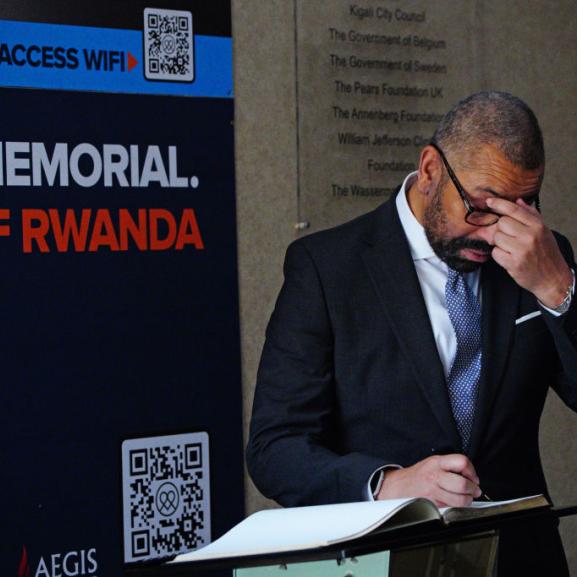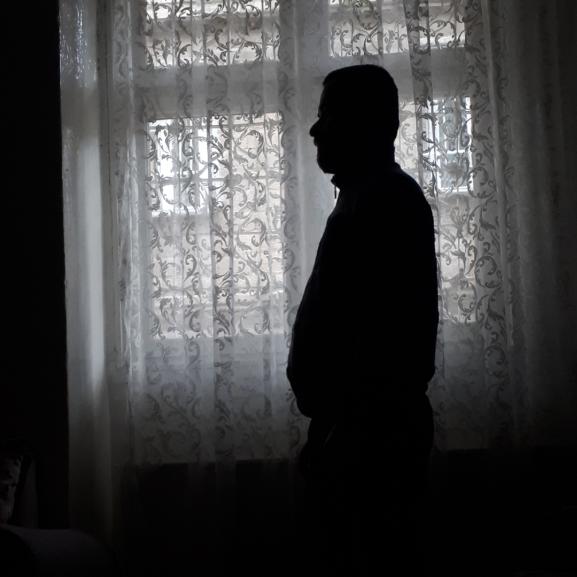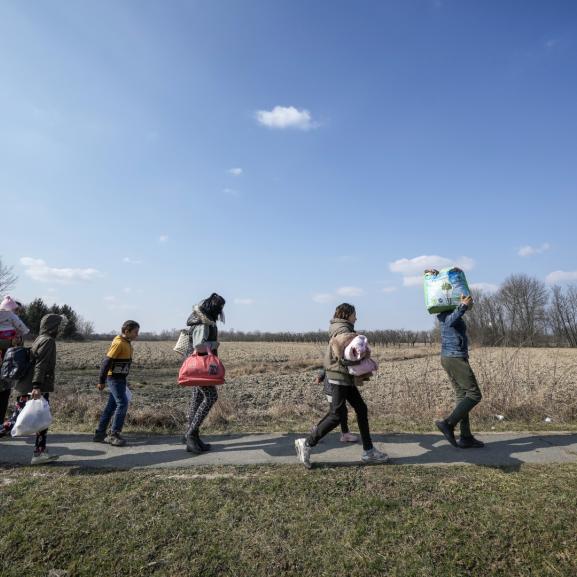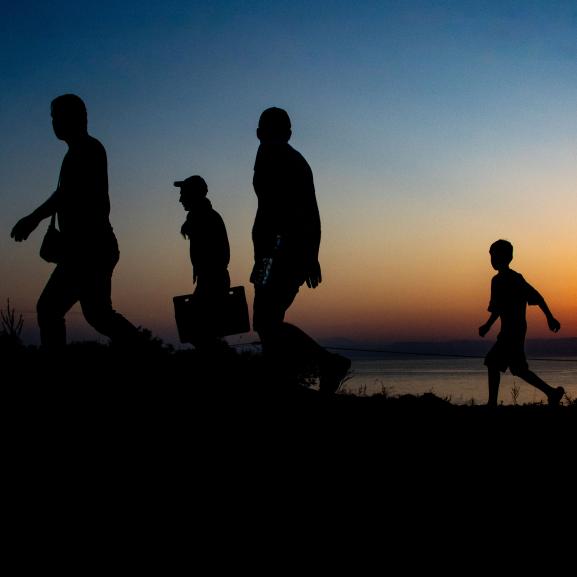Facts about refugees
There are a lot of myths about refugees, spread by those who benefit from stoking fear and division. We’re here to give you the facts.
Who is a refugee?
A refugee is a person who has been forced to flee their home due to the risk of future persecution. This could be due to their race, religion, political beliefs, nationality or ‘membership of a particular social group’ which is defined, for example, by their gender or sexuality. Refugees feel they have no choice but to leave and seek safety in another country.
Refugees are protected by international law under a number of treaties, including the 1951 United Nations Refugee Convention. They have a right to work and to physical safety, medical care and schooling.
What’s the difference between a refugee and an asylum seeker?
Refugee status is declaratory – in other words, a person is a refugee as soon as they meet the criteria outlined in the definition above, which can happen from the moment they cross an international border. When a country of sanctuary grants refugee status, it is simply recognising a status that flows from the experience of the individual. As a result, people seeking protection must be treated as refugees from the moment they are encountered – and so benefit from key protections in the Refugee Convention – unless and until they are found not to be.
Someone who makes a formal claim for protection through a country’s asylum system and is currently awaiting a decision on that claim is called an asylum seeker. We prefer the more compassionate term ‘person seeking safety’. This means they have fled their home country to seek sanctuary but haven’t yet been granted formal refugee status. Generally speaking, people who are not yet recognised as refugees are not allowed to work in the UK and don’t have access to the same rights as citizens.
Where do most refugees come from?
According to the latest refugee statistics from the United Nations High Commissioner for Refugees (UNHCR), the largest proportion of refugees globally are from Afghanistan and Syria. Together they make up one third of all refugees, with 6.4 million people legally recognised as refugees from each country. This is closely followed by Venezuela with 6.1 million refugees and Ukraine with 6 million refugees.
Many refugees are fleeing from countries where torture is still widespread.

How many refugees live in the UK?
Refugees make up a tiny part of the UK population. The latest figures suggest there are 448,600 refugees currently living in the UK. With over 68 million people calling the UK home, that means refugees make up less than 0.7% of the total population.
Can refugees work in the UK?
Once someone is granted refugee status, they have the right to work in the UK.
However, in the vast majority of cases people seeking safety whose claim is not yet determined are not allowed to work. Claims for asylum can take months or even years to process, leaving people struggling to support themselves and their families on less than £50 a week.
Together with Refugee Action, we’re calling on the Government to #LiftTheBan and give people seeking asylum the right to work.
Which countries host the most refugees?
Four out of five refugees stay within the same region, seeking sanctuary in neighbouring countries. This means as many as 75% of refugees are currently being hosted by low- and middle-income countries that lack the resources to manage refugee needs on their own.
Iran currently hosts the highest number of refugees, with 3.8 million people seeking safety there. This is closely followed by Turkey with 3.3 million, Colombia with 2.9 million and Germany with 2.6 million. The UK doesn’t even make the top 10.

Do people have to claim asylum in the first country they reach?
Neither the 1951 Refugee Convention nor any other part of international law requires people to seek protection in the first safe country they reach. Refugees can claim asylum in any country, including the UK, even after passing through other ‘safe’ countries. In fact, the Refugee Convention gives refugees a degree of choice as to where to seek sanctuary and protects them against punishment for illegal entry to the receiving country in certain circumstances.
While this does not give refugees a right of entry to the UK, it does mean that their rights must be respected once they are in. Since Brexit, the UK government has tried to exclude refugees from the UK asylum system if they have passed through another country in certain circumstances. These claims are considered ‘inadmissible’. In the absence of anywhere safe to send these people, they have been stuck in limbo, some for a matter of years.
How is a country deemed ‘safe’ for people seeking asylum?
A ‘safe third country’ is a country to which the UK could – in theory – send asylum seekers to have their refugee claim considered instead of determining the claim in the UK. A country is considered ‘safe’ when there is no threat to life or liberty based on their race, religion, nationality, social group, or political opinion. The person in question must be able to apply for refugee status and receive protection in line with the Refugee Convention. There must be no risk of removal of that person in violation of international law and the country must respect the principle of non-refoulement.
The principle of non-refoulement outlined in the Refugee Convention guarantees that a person cannot be returned – either directly or indirectly – to a country where their life or freedom would be threatened. If the UK removes people to a country it considers ‘safe’, but it isn’t, then the UK would be breaching international law.
The Conservative government’s cruel plan to send people to Rwanda was found to be unlawful, as Rwanda is not a sufficiently safe country for refugees. This is because the Rwandan authorities are not yet able to determine whether someone is a refugee, and there is too great a risk that refugees will be sent back to their country of origin to face persecution.
How does Freedom from Torture help refugees?
It’s estimated that around a third of all refugees in countries like the UK have experienced torture. Together with torture survivors, we campaign against torture and for better refugee rights in the UK.
We provide specialist therapy and support to help refugees and asylum seekers who have survived torture to rebuild their lives. We help survivors document evidence of torture to help with asylum claims and work with them to restore their physical and mental health. Our legal advice and welfare team offer immigration advice, assistance with asylum cases and fight to ensure people are housed in clean and safe accommodation.
Now you have the facts, join us.







